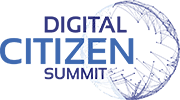Name: Brindaalakshmi K
Organisation: Hidden Pockets
Country: India
Stakeholder Group: Civil Society Organisation
Thematic Area: Access
Session Title: Sexuality and Online spaces: Is Internet for all?
Session Format: Panel
Co-organizers Name (if any):
Speakers Name: Debarati Halder, Jasmine George, Tanzila Khan, Brindaalakshmi, Chinmayi SK and Pawan Dhall
Speaker Status: Waiting for confirmation
Relevance of the issue with specified session theme: Access in the context of Internet, is one that is often associated with infrastructure and physical access to the Internet. Why is it so? Is access only a product of infrastructural availability? Even with the infrastructure in place, there may be some groups that face challenges with access and are marginalized due to their identities. Is the Internet really inclusive? How inclusive is it? This session will tie the concept of access to the human experience of sexually marginalized groups, especially people of different sexualities, genders and disabilities. The implications of these identities on access need to be understood from several different perspectives ie user, provider, privacy, and freedom of expression. Access cannot be viewed in isolation, only from the lens of users. Are these marginalized communities a part of the group of creators or providers? For example, what role does the Internet play in making technology accessible to women as creators of technology and not just users? This session seeks to explore the idea of access and its different dimensions that go beyond just infrastructure. This session will explore the reality of access and its intersection with identity, privacy and freedom of expression.
Content of the session (Objective of the session): The objective of this session is to understand how the Internet supports the cause of different sexually marginalized communities like women, persons with different sexual orientations and gender (LGBTQIA) and persons with different disabilities. It will explore both the challenges and the solutions provided by the Internet for these groups. Some of the questions that this session seeks to find answers to are: How does the Internet help the cause of different sexually marginalized communities like women, persons with different sexual orientations and gender (LGBTQIA) and persons with different disability especially women? What are the challenges that these groups face? How is the Internet playing a role in providing them with access to the world and giving the voice and freedom to express themselves? With Section 377 affecting the LGBTQIA community, how is the Internet helping the community raise voice for its cause? How does the Internet provide the space for these different communities to seek solace and handle isolation? Dangers with privacy and other issues that these communities may face with using the Internet. How vulnerable does the Internet make them? How does this affect their access to Internet itself and their freedom of expression? Legal recourse available
What is USP of the session: The human experience of sexually marginalized communities with respect to access to Internet.
Please describe how you will use your speakers and how their views/ perspectives /expertise will be included in the session: • With over 20 years of experience working with the LGBTQIA community especially to do with sexual health, Pawan Dhall will address the experience of the community with respect to the Internet. The legal perspective will be addressed by both Debarati Halder as a lawyer handling cases on online harassment, stalking and other issues faced mostly by women. Tanzila Khan, as a person with disability and disability rights activist, will bring in the perspective of both a woman and a person with disability. Hailing from Pakistan, Khan’s experience will also put the situation of women and persons with disability in better perspective. With over 5 years of experience as a sexual and reproductive health advocate, Jasmine George, a lawyer and sexual and reproductive health advocate will add the perspective of single women in different spaces including Internet. As a developer and an active participant at the forefront of the global Open Source technology movement, Chinmayi SK will address the issue of gender with respect to being providers/creators of technology. With over 6 years of experience as a journalist, both in the area of technology and SRHR (Sexual and Reproductive Health and Rights), Brindaalakshmi will moderate the panel.
How are you bringing diversity in your proposed session whether it is relevant to the specified theme? The panel will include speakers from the different sexually marginalized groups including LGBTQIA, women and persons with disability. The proposed speakers come with nuanced experiences having worked with gender related issues with respect to technology from different perspectives including technology workspace culture, legal, social, psychological, sexual health and user experience. All these different perspectives will be explored to understand the challenges and the solutions that these sexually marginalised communities have with respect to access to Internet.
Relevant Tags (Minimum 3 tags) IT for all, Internet for change, inclusion, ICT4D, sustainable development, gender equality, disability, sexuality,
